 W
WEdward Balliol was a claimant to the Scottish throne during the Second War of Scottish Independence. With English help, he ruled parts of the kingdom from 1332 to 1356.
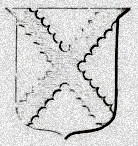 W
WNicholas de Balmyle, also called Nicholas of St Andrews, was a Scottish administrator and prelate in the late 13th century and early 14th century. A graduate of an unknown university, he served his earliest years as a clergyman at St Andrews, moving on to hold churches in Lothian as well as deputising to two archdeacons of Lothian.
 W
WThomas de Berkeley, 1st Baron Berkeley, The Wise, feudal baron of Berkeley, of Berkeley Castle in Gloucestershire, England, was a peer, soldier and diplomat. His epithet, and that of each previous and subsequent head of his family, was coined by John Smyth of Nibley (d.1641), steward of the Berkeley estates, the biographer of the family and author of "Lives of the Berkeleys".
 W
WGuy de Bryan, 1st Baron Bryan, KG was an English military commander and Admiral.
 W
WAndrew Harclay, 1st Earl of Carlisle, alternatively Andreas de Harcla, was an important English military leader in the borderlands with Scotland during the reign of Edward II. Coming from a knightly family in Westmorland, he was appointed sheriff of Cumberland in 1311. He distinguished himself in the Scottish Wars, and in 1315 repulsed a siege on Carlisle Castle by Robert the Bruce. Shortly after this, he was taken captive by the Scots, and only released after a substantial ransom had been paid. His greatest achievement came in 1322, when he defeated the rebellious baron Thomas of Lancaster at the Battle of Boroughbridge on 16–17 March. For this he was created Earl of Carlisle.
 W
WJohn Comyn, 3rd Earl of Buchan was a chief opponent of Robert the Bruce in the civil war that paralleled the War of Scottish Independence. He should not be confused with the better known John III Comyn, Lord of Badenoch, who was his cousin, and who was killed by Bruce in Dumfries in March 1306. Confusion between the two men has affected the study of this period of history.
 W
WRobert de Clifford, 1st Baron de Clifford, of Appleby Castle, Westmorland, feudal baron of Appleby and feudal baron of Skipton in Yorkshire, was an English soldier who became 1st Lord Warden of the Marches, responsible for defending the English border with Scotland.
 W
WSir William Douglas "le Hardi", Lord of Douglas was a Scottish nobleman and warlord.
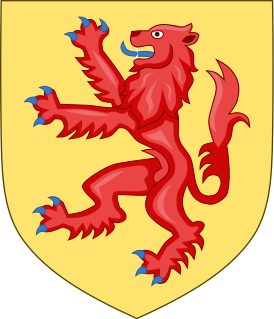 W
WDonnchadh IV, Earl of Fife [Duncan IV] (1289–1353) was sometime Guardian of Scotland, and ruled Fife until his death. He was the last of the native Scottish rulers of that province.
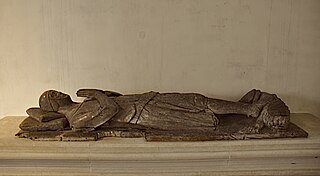 W
WJohn Hastings, 2nd Baron Hastings was a medieval English Baron. He was Lord of the Manor of Hunningham.
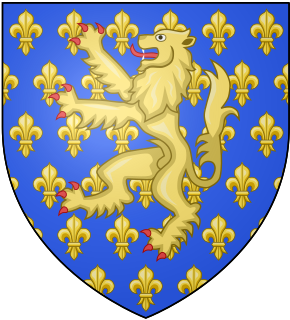 W
WHenry de Beaumont, jure uxoris 4th Earl of Buchan and suo jure 1st Baron Beaumont, was a key figure in the Anglo-Scots wars of the thirteenth and fourteenth centuries, known as the Wars of Scottish Independence.
 W
WGerard II de Lisle, 1st Baron Lisle of Kingston Lisle, was an English nobleman and soldier during King Edward III's campaigns in Scotland and France.
 W
WIsabella MacDuff, Countess of Buchan was a significant figure in the Wars of Scottish Independence.
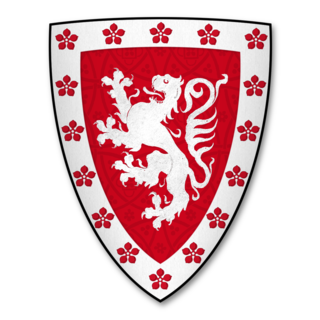 W
WPatrick de Dunbar, 9th Earl of March, was a prominent Scottish magnate during the reigns of Robert the Bruce and David II.
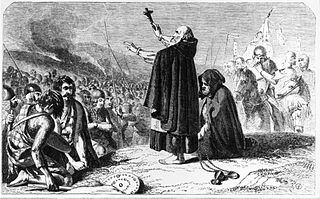 W
WMaurice was a 14th-century Scottish cleric who became Prior of Inchmahome, Abbot of Inchaffray and then Bishop of Dunblane. He was Prior of Inchmahome Priory in Menteith after 1297. He became abbot of Inchaffray Abbey in Strathearn between March 1304 and October 1305. As Abbot of Inchaffray, he held a canonry in the diocese of Dunblane, that is, the precentorship of Dunblane Cathedral. After the death of Nicholas de Balmyle, he was elected to the bishopric of Dunblane. He was consecrated to the see before 23 March 1322, after litigation at the Papal court. King Edward II of England had nominated one Richard de Pontefract to the see, while Roger de Ballinbreich had also been elected by the chapter; both of these men were overlooked by the Pope in Maurice's favour.
 W
WWilliam Montagu, 2nd Baron Montagu, was an English peer, and an eminent soldier and courtier during the reigns of Edward I and Edward II. He played a significant role in the wars in Scotland and Wales, and was appointed steward of the household to Edward II. Perhaps as a result of the influence of his enemy, Thomas, 2nd Earl of Lancaster, Edward II sent him to Gascony as Seneschal in 1318. He died there in October of the following year.
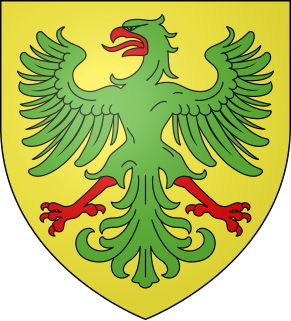 W
WRalph de Monthermer, 1st Baron Monthermer, Earl of Gloucester, Hertford, and Atholl was an English nobleman, who was the son-in-law of King Edward I. His clandestine marriage to the King's widowed daughter Joan greatly offended her father, but he was quickly persuaded to pardon Ralph.
 W
WJohn Neville, 3rd Baron Neville, was an English peer, naval commander, and soldier.
 W
WRalph Neville, 2nd Baron Neville of Raby was an English aristocrat, the son of Ralph Neville, 1st Baron Neville de Raby by Eupheme de Clavering.
 W
WNicholas O. Tiron, Abbot of Arbroath and Bishop of Dunblane, was a late 13th-century and early 14th-century churchman in the Kingdom of Scotland. Little is known about Nicholas until he appeared on 21 November 1299, holding the position of Abbot of Arbroath in a charter of that abbey; the last attestation of his predecessor Henry can be dated to 16 October 1296, so that Nicholas must have become abbot sometime in between these two dates.
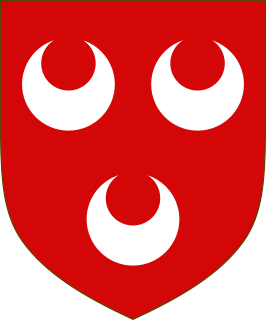 W
WSir William Oliphant, Lord of Aberdalgie and Dupplin, was a Scottish magnate, knight and leader during the Wars of Scottish Independence.
 W
WJohn de Vere, 7th Earl of Oxford was the nephew and heir of Robert de Vere, 6th Earl of Oxford who succeeded as Earl of Oxford in 1331, after his uncle died without issue.
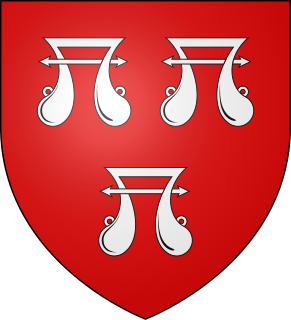 W
WWilliam Ros, 3rd Baron Ros of Helmsley was a military commander under Edward III of England. He was knighted by the king in 1346, having helped raise the siege of Aiguillon. In the same year, he was one of the lords who led the second division in the Battle of Crécy, and afterwards commanded the fourth division of the English army against the Scots, near Neville's Cross, when David Bruce, with many of the Scottish nobles, was taken prisoner.
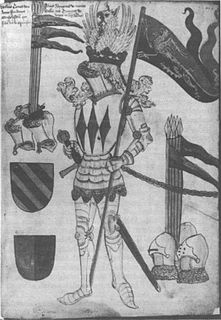 W
WWilliam Montagu, alias de Montacute, 1st Earl of Salisbury, 3rd Baron Montagu, King of Man was an English nobleman and loyal servant of King Edward III.
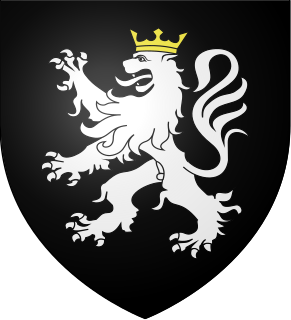 W
WJohn Segrave, 2nd Baron Segrave (1256–1325) was an English commander in the First War of Scottish Independence.
 W
WJames Stewart was the 5th Hereditary High Steward of Scotland and a Guardian of Scotland during the First Interregnum.
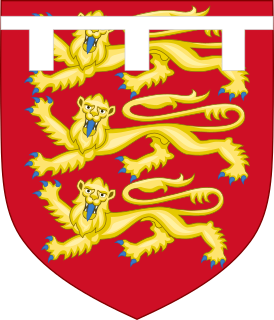 W
WThomas of Brotherton, 1st Earl of Norfolk, was the fifth son of King Edward I of England (1272–1307), and the eldest child by his second wife, Margaret of France, the daughter of King Philip III of France. He was, therefore, a younger half-brother of King Edward II (1307–1327) and a full brother of Edmund of Woodstock, 1st Earl of Kent. He occupied the office of Earl Marshal of England.
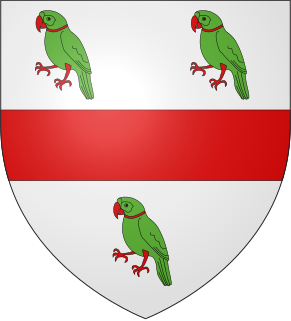 W
WSir Marmaduke Thweng, later 1st Baron Thweng, was an English knight from Yorkshire who fought in the Wars of Scottish Independence.